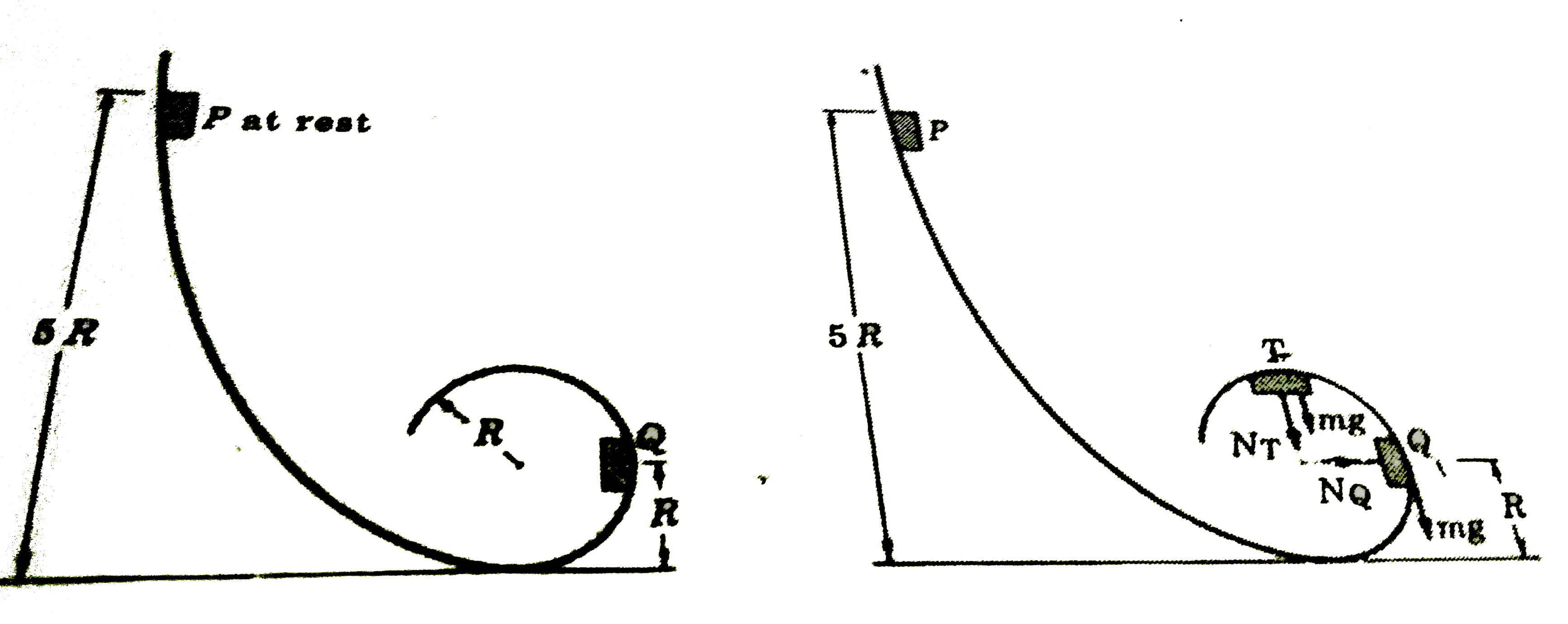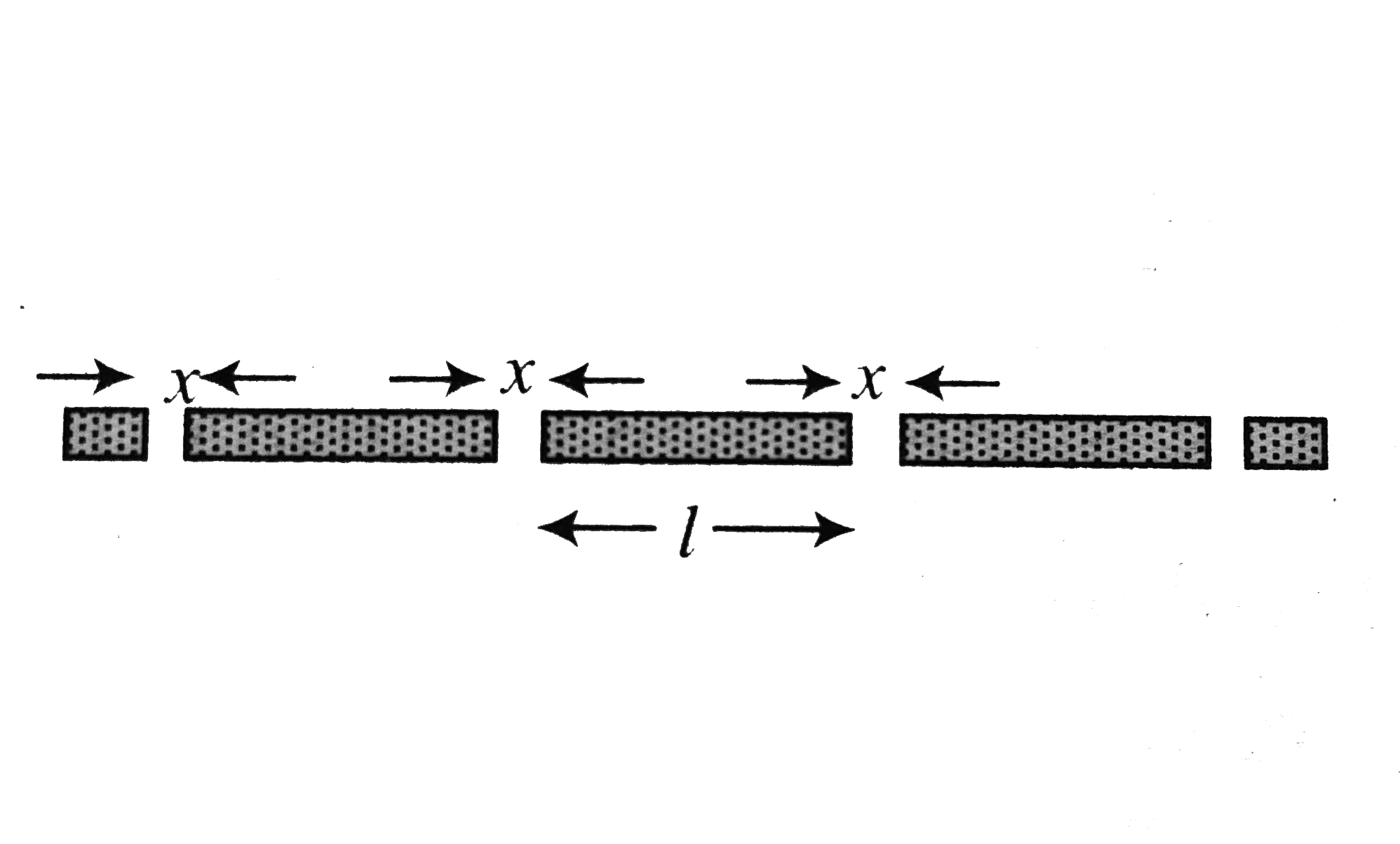On a railway curve, the outside rail is laid higher than the inside one so that resultant force exerted on the wheels of the rail car by the tops of the rails will
Have a horizontal inward component
Be vertical
Equilibrium the centripetal force
Be decreased
The correct Answer is:A
Step by step video, text & image solution for On a railway curve, the outside rail is laid higher than the inside one so that resultant force exerted on the wheels of the rail car by the tops of the rails will by Physics experts to help you in doubts & scoring excellent marks in Class 11 exams.
Updated on:21/07/2023Topper's Solved these Questions
Similar Questions
Workers are loading equipment into a freight elevator at the top floor of a building. However, they overload the elevator and the worn cable snaps. The mass of the loaded elevator at the time of the accident is 1600 kg. As the elevator falls, the guide rails exert a constant retarding force of 3700 N on the elevator. At what speed does the elevator hit the bottom of the shaft 72 m below?
View SolutionA small block of mass m slides along a smooth track, as shown in fig. (i) If it starts from rest at P, what is the resulting force acting on it at Q ? (ii) at what height above the bottom of the loop should the block be released so that the force it exerts against the track at the top of the loop equals its weight?

View Solution
Knowledge Check
A railway track is banked for a speed v, by making the height of the outer rail h higher than that of the inner rail. If the distance between the rails is l and the radius of the curvature of the track is r, then
Ahl=v2rgBtan{sin−1(hl)}=v2rgCtan−1(hl)=v2rgDhr=v2lgA railway track is banked for a speed v, by making the height of the outer rail h higher than that of the inner rail. The distance between the rails is d. The radius of the curvature of the track is r
Ahd=v2rgBtan(sin−(h)d)=v2rtCtan−1(hd)=(v2rg)Dhr=v2dgA railway track is banked for aspeed v, by making the height of the outer rail 'h' higher than that of the inner rail.The horizontal separation between the rails is d. The radius of curvature of the track is 'r': then which of the following relationis true?
Ahd=(v2rgBtan(sin−1(hd))=v2rgCtan−1)(hd))=v2rgDhr=v2dg
An isolated rail car of mass M is moving alonga straight, frictionless track at an initial speed v0. The car is passing under a bridge when a crate filled with N bowling balls, each of mass m, is dropped from the bridge into the bed of the rail car. the crate splits open and the bowling balls bounce around inside the rail car, but none of them fall out.
(B).What is the average speed of the rail car + bowling balls system some time after the collision?
View SolutionA train is moving at the rate of 60 km per hour around a curve of radius 500 m and the distance between the rails is 170 cm. By how much the outer rail be raised above the inner one so that there may be no lateral thrust on the outer rails ? (g=9.8ms−2)
View SolutionThe radius of curvature of railway track at a place where the train is moving at a speed of 72kmh−1 is 625m The distance between the rails is 1.5m Find the angle and the elevation of the outer rail so that there may be no side pressure on the rails Take g=9.8ms−2 .
View Solution
The gap between any two rails each of length l laid on a railway trach equals x at 27∘C When the temperature rises to 40∘C the gap closes up. The coefficient of linear expansion of the material of the rail is α. The length of a rail at 27∘C will be
View SolutionAn isolated rail car of mass M is moving along a straight, frictionless track at an initial speed v0. The car is passing under a bridge when a crate filled with N bowling balls, each of mass m, is dropped from the bridge into the bed of the rail car. The crate splits open and the bowling balls bounce around inside the rail car, but none of them fall out. Is the momentum of the rail car + bowling balls system conserved in this collision ?
View Solution